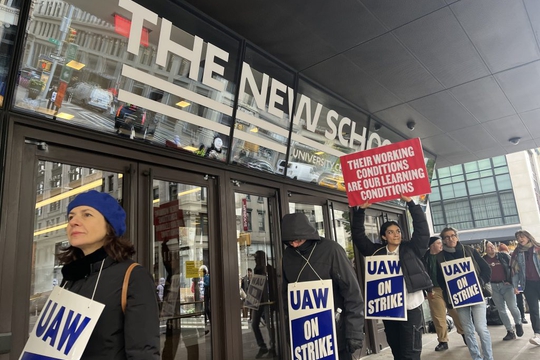Book:
Correspondences from the Upsurge
Aug. 28, 2023

Reports from Struggles in US Higher Education
During July, we will be publishing reports from labour struggles in North American universities. Across the US, university workers are unionizing and taking strike action in unprecedented numbers. Since 2013, over 120 new union branches have won recognition in universities. In 2022, there were 15 academic strikes, the highest number of strikes in academia in at least 20 years, while graduate and undergraduate workers at 20 private academic institutions, representing over 25,000 workers, have won union recognition agreements. The high point of this 2022 wave was the University of California system strike that lasted nearly six weeks and involved 48,000 graduate student workers across 10 campuses. In 2023, this wave has shown no sign of dipping, with graduate workers taking strike at Temple University (Philadelphia), the University of Michigan, and Dartmouth College (New Hampshire), postdocs at the University of Washington, and faculty staff, adjunct lecturers, and graduate workers taking strike at Rutgers University (New Jersey) and Chicago State University.
Clearly, there is a lot to learn from these struggles and they should serve as a source of inspiration for all university workers. But there is also a lot to understand about the concrete problems and difficulties which organisers have faced in these campaigns and the regional and institutional contexts which frame industrial relations in each case.
In this mini-issue, we will be publishing short reports and longer essays from university organisers which give first hand accounts of strikes and organising campaigns. They will focus on the problems and difficulties which workers encountered during campaigns, the organising approaches that were tried out and the tactics that were effective against managers. We have compiled this series to gain a clear and sober picture of this uptick of trade union activity in US campuses - one which fills in blanks of the journalistic coverage which has been our main window into many of these disputes.
There are key differences between the UK and the US in terms of industrial relations systems and the structure of higher education. This is reflected in the contrasting vocabularies that are used in these different labour organising contexts. To help readers not familiar with this terminology, we have provided a non-exhaustive glossary below. There are also significant conjunctural differences. To try to capture these different developments we have also included pieces which reflect on the current moment in UK HE struggles in light of the US upsurge.
Glossary:
Adjunct: An academic not employed by the institution but who is connected with or teaches courses at the institution. Adjuncts do not hold a regular salary but may be compensated on a per-course basis. The prefix ‘Adjunct’ relates to a temporary faculty position with responsibilities limited to teaching and associated office hours. Whether holders of Adjunct positions are considered Members of the Faculty for purposes of voting and other privileges varies widely by institution.
Administrators: University senior managers.
Assistant Professors: Entry level position for academics holding PhDs or the appropriate terminal degree, and typically have access to tenure track.
Caucus: A caucus is a group of trade union members with shared concerns, whether comparable professional status or political objectives. Caucuses normally exist in parallel to the official structure of the union in order to develop electoral slates, industrial strategies and negotiating agendas.
Faculty: A permanent academic lecturer in a School or Department who holds an academic teaching position and is independently responsible for conducting regular accredited degree programmes and research activities. Faculty are distinguished from other academic staff who may or may not have teaching responsibilities by holding institutional voting rights, benefits and membership in the faculty governing body. They will hold the academic rank of professor, associate professor, assistant professor or instructor at the institutions.
Graduate workers: Graduate students (with at least a BA degree) who work for the university in return for a wage and usually a waiver of their tuition. The two largest categories are Teaching Assistants (TAs) and Research Assistants (RAs), both of which are most often part-time hires.
Instructor: Instructors will hold a masters but typically do not have PhDs and are not on the tenure track.
Instructors of record: An instructor who has overall responsibility for the development and implementation of the course syllabus, for the day-to-day delivery of the course, for ensuring that course learning outcomes are covered and assessed, and for the issuing of grades.
Long-Haul Strike: Equivalent to an indefinite strike.
Staff: Commonly used to refer to employees in non-teaching activities of various types in support of the educational, research, and service programs of the University. Equivalent to professional services.
Teaching Assistants: Non-tenured teachers who perform instructional duties, whether leading seminar sessions or teaching their own courses. They are more likely to be employed in humanities and social sciences degree programmes.
Tentative agreements: Proposed collective bargaining agreements that have not been formally ratified by union leaders and the university leaders. Trade union officials use tentative agreements to help inform membership votes over negotiated proposals. Contracts which may emerge out of tentative agreements are time-limited formal agreements which determine the terms and conditions of specific units of academic workers.
Tenure: Permanent academic employees who can’t be fired except for egregious offenses.
Research Assistants: Researchers overwhelmingly concentrated in the pure and applied sciences and engineering, often working with other RAs in big labs where faculty members oversee research projects.
Wall-to-wall: A wall-to-wall union means all university employees (usually academic), regardless of job title, are part of the same union, or the same bargaining unit or coordinate activities in their respective unions.

Labour Casualisation in UK Higher Education (Part 2)
by
Roberto Mozzachiodi
/
Aug. 21, 2023
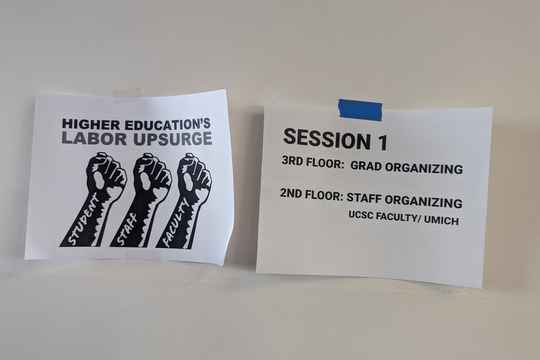
New Strategies, New Orthodoxies
by
James Eastwood
/
Aug. 1, 2023
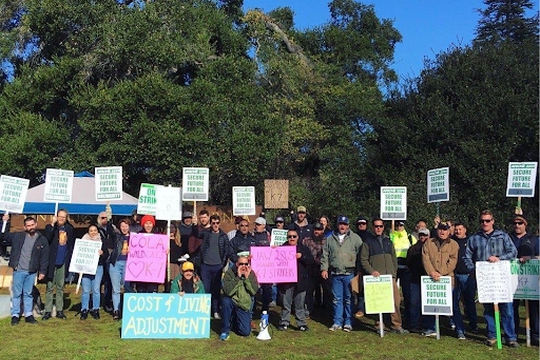
Short of the Long Haul (Part 2)
by
Jack Davies,
Sarah Mason
/
July 28, 2023
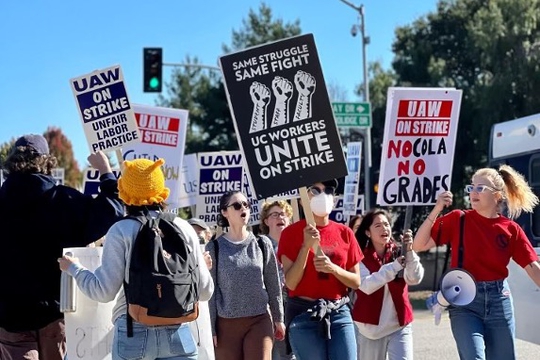
Short of the Long Haul (Part 1)
by
Jack Davies,
Sarah Mason
/
July 11, 2023
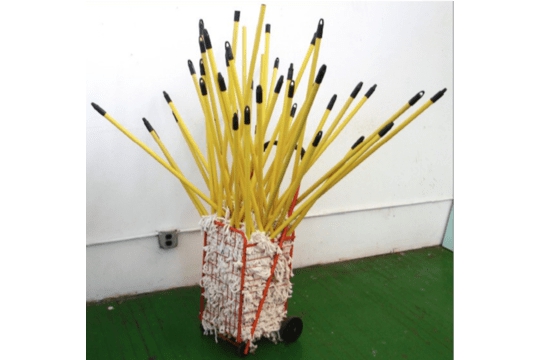
Labour Casualisation in UK Higher Education (Part 1)
by
Roberto Mozzachiodi
/
July 3, 2023
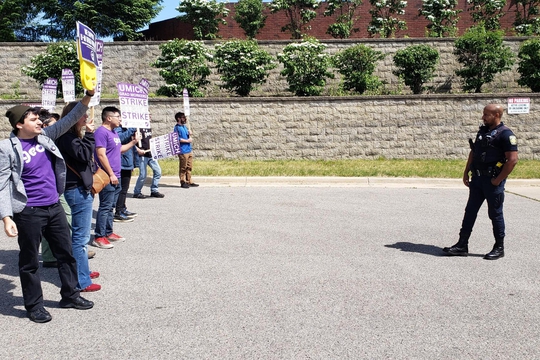
Reflections on a Teaching Assistant Strike
by
Michael Mueller,
Lucy Peterson
/
July 3, 2023
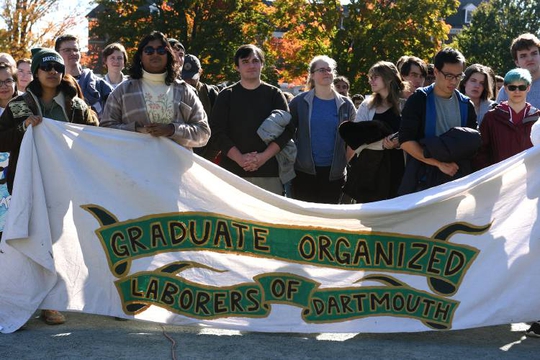
Winning a Bargaining Unit for All Graduate Workers
by
Logan E. Mann
/
July 3, 2023

Minority Strikes Can Work
by
Bethany Kosmicki,
Matt Ford
/
July 3, 2023
